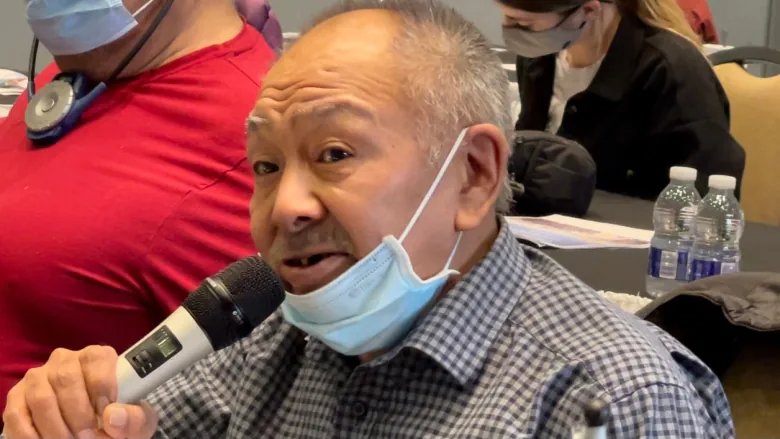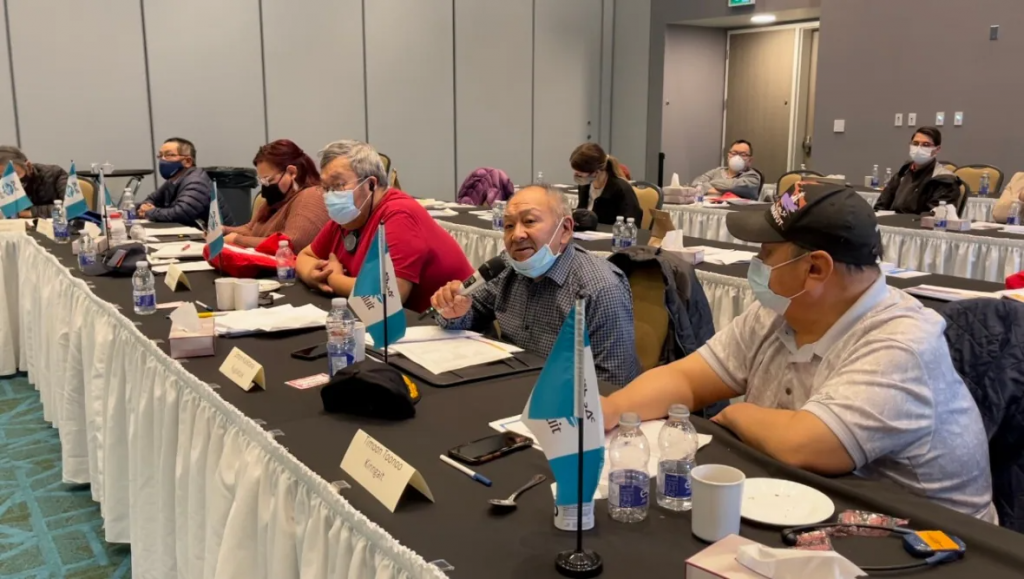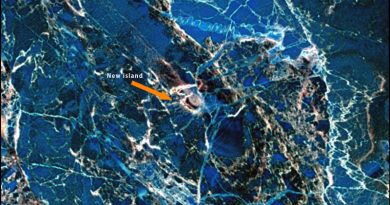Better alcohol education needed in Nunavut, Canada Kugluktuk mayor says

Kugluktuk’s alcohol education committee says its experience is ‘very negative’
Alcohol education committees in Nunavut communities can’t educate residents about liquor consumption because of the repercussions they face, says the mayor of Kugluktuk, Nunavut.
That’s why Kugluktuk’s alcohol education committee, which first formed in 2007, was unable to carry out its functions, Mayor Simon Kuliktana told the Nunavut Association of Municipalities (NAM).
Its members often came under attack as a result of their decisions, Kulitkana said.
“It became very negative,” he said about the committee’s experience. The committee was dissolved in 2018 when Kugluktuk voted to become an unrestricted community, that is, one with no limits on alcohol imports into the community.
By Nunavut law, an alcohol education committee is supposed to approve all requests by residents to buy alcohol in a community that has restrictions in place. But the committees don’t have the capacity or resources to do alcohol education, Kuliktana said at this week’s NAM meeting in Iqaluit.
“I think that’s where the alcohol commission fails,” he said.
Kuliktana made these comments after two staffers from Nunavut’s Liquor and Cannabis Commission (NULC), the public agency that sells and distributes alcoholic beverages and cannabis products, spoke to the territory’s mayors and senior administrators.
Kuliktana now wants to see a liquor plebiscite which could see the return of liquor restrictions and an alcohol education committee to Kugluktuk. The plebiscite, to take place in 2022, would be Kugluktuk’s fourth vote on the flow of alcohol since the creation of Nunavut in 1999.
The decision on holding the plebiscite will take place after Nunavut’s new finance minister takes over. That minister won’t be named until after the territory’s incoming premier and new cabinet are chosen in the leadership forum on Nov. 17.

Jo-anne Falkiner from the NULC agreed with Kuliktana that the alcohol education committees lack teeth.
But, according to the Liquor Act inherited from the Northwest Territories, alcohol education committees are the bodies in restricted communities which determine who may consume, possess, purchase or traffic alcohol, who can order alcohol, and the amount of alcohol a resident may bring.
That could change under a new liquor act.
In 2010, Keith Peterson, the territory’s then finance minister, set up a task force to advise Nunavut on how to write a new Nunavut Liquor Act. Their 2012 report called Halting the Harm recommended a new liquor law focussing on harm reduction, stronger alcohol education committees and alcohol education committees in every community, restricted or not.
The act was then amended, but not rewritten.
Kugluktuk, with a population of about 1,600, first voted in its alcohol education committee in 2007 after more than a year of escalating vandalism and violence. In 2014, Kugluktuk decided once again in a plebiscite to keep its alcohol education committee.
Then, in 2018, Kugluktuk residents voted against the committee and dropped any restrictions on alcohol orders.
That produced a jump in calls to police involving intoxication, the RCMP said.
Related stories from around the North:
Canada: Majority supports alcohol restrictions in Arctic Canadian community of Baker Lake, but motion falls short, CBC News
Finland: Finland’s six-year slump in alcohol sales ends, Yle News



